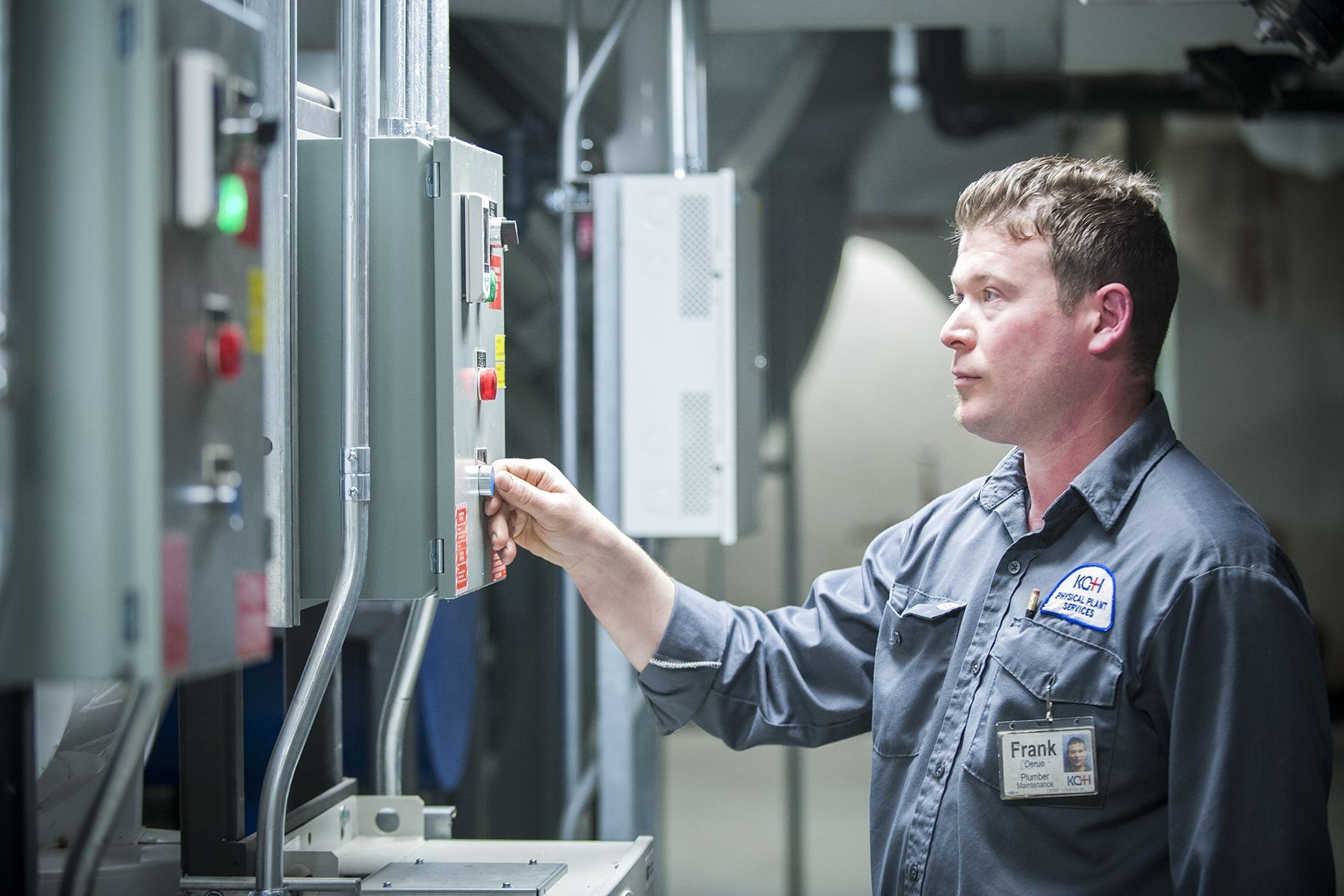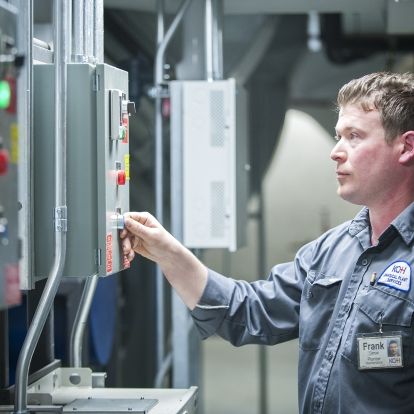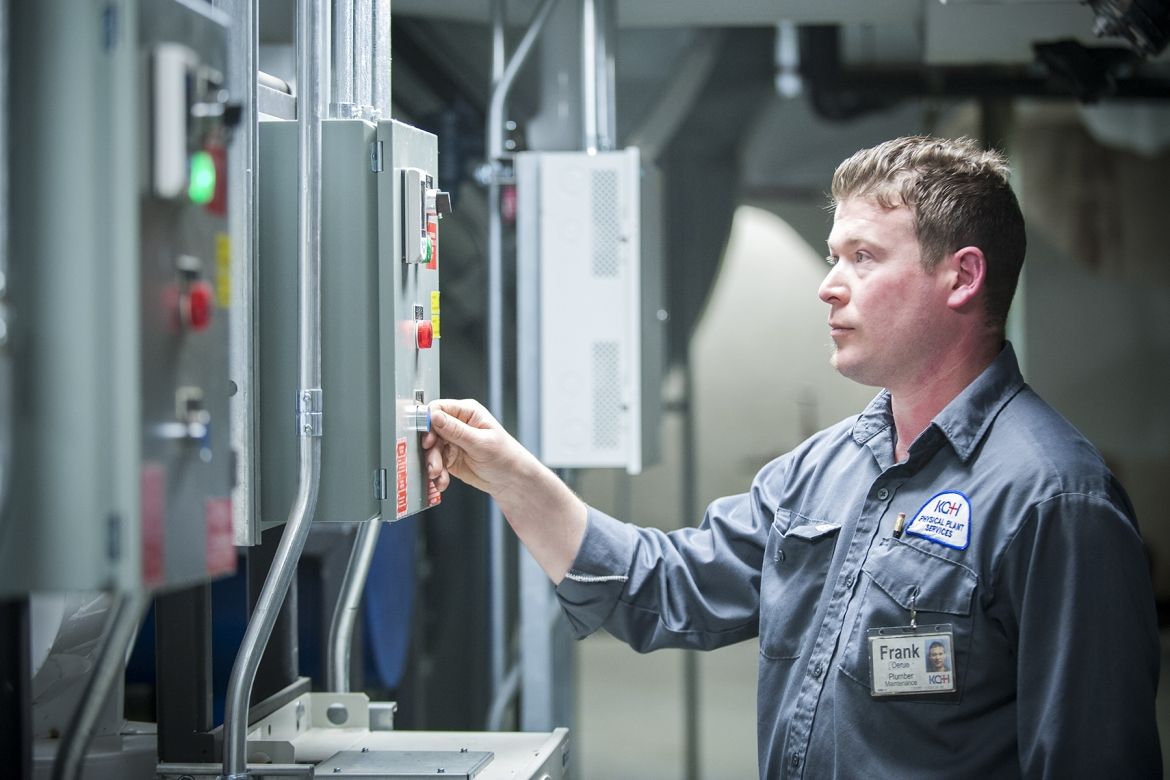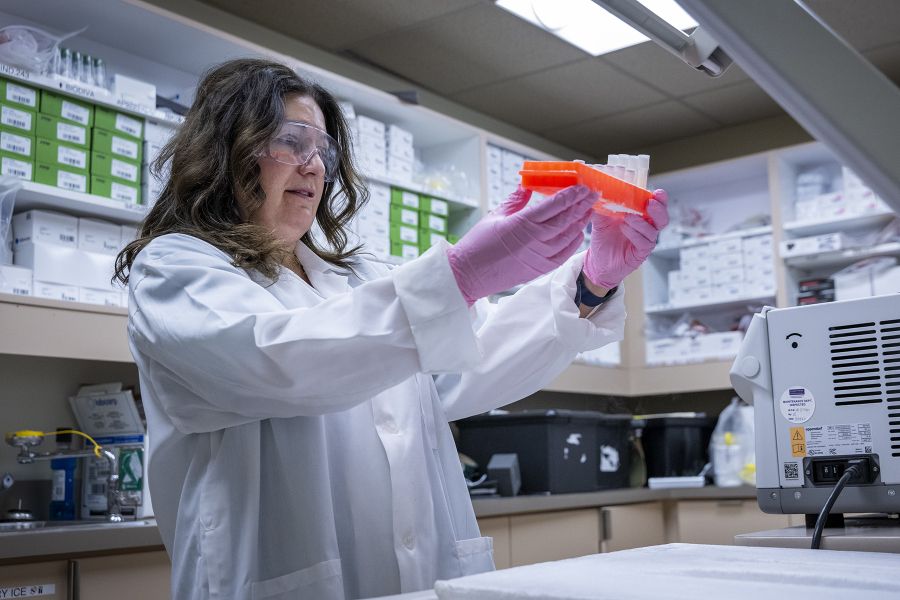Effective immediately masking is required for everyone when present on all inpatient units, in the Emergency Department (ED), the Urgent Care Centre (UCC), and the Children’s Outpatient Centre (COPC).

Despite operating in some of the oldest hospital facilities in the country, Kingston General Hospital is being recognized for being one of the most energy efficient acute care hospitals in Canada. Last week at the Ontario Hospital Association’s Health Achieve Conference, KGH was named the winner of their Water Conservation & Protection Award.
The award recognizes one hospital each year that has undertaken water conservation or pollution prevention projects.
“We're honoured to receive this very prestigious award,” says Allan McLuskie, Director of Facilities Management. “We knew there was an opportunity to make some savings and become more efficient, and at the same time upgrade some of our existing infrastructure which, on average, dated back to the 1960’s.”
Starting in 2011, KGH was able to install 585 Moderators to reduce flow in the hand washing sinks as well as replace 239 tank type toilets, 326 wall and floor mounted toilets, 388 toilet flush valves and 17 urinals and flush valves. This along with work to replace some water cooled equipment has reduced our water usage by 25 per cent thereby saving 76,000 cubic meters of water per year.
This award comes hot on the heels of another award that recognizes us for our work in becoming more energy efficient. At their conference earlier this year KGH was announced as the winner of the Canadian Healthcare Engineering Society’s (CHES) Wayne McLellan Award of Excellence. CHES touted our overall efforts to reduce the hospital’s carbon footprint by 14 per cent through our work with our energy saving partner Honeywell. In terms of dollars, the facility upgrades save the hospital roughly $800,000 per year which can be funneled back into patient care.
“The people who most benefit from this project are the patients. Not only are we directing our saving back into patient care, but as health care providers we are taking a leadership role in reducing our carbon footprint to improve the health of our community, including current and future patients,” says McLuskie.
Gallery


Plumber Frank Dereu operates an electronic control that improves efficiency.



